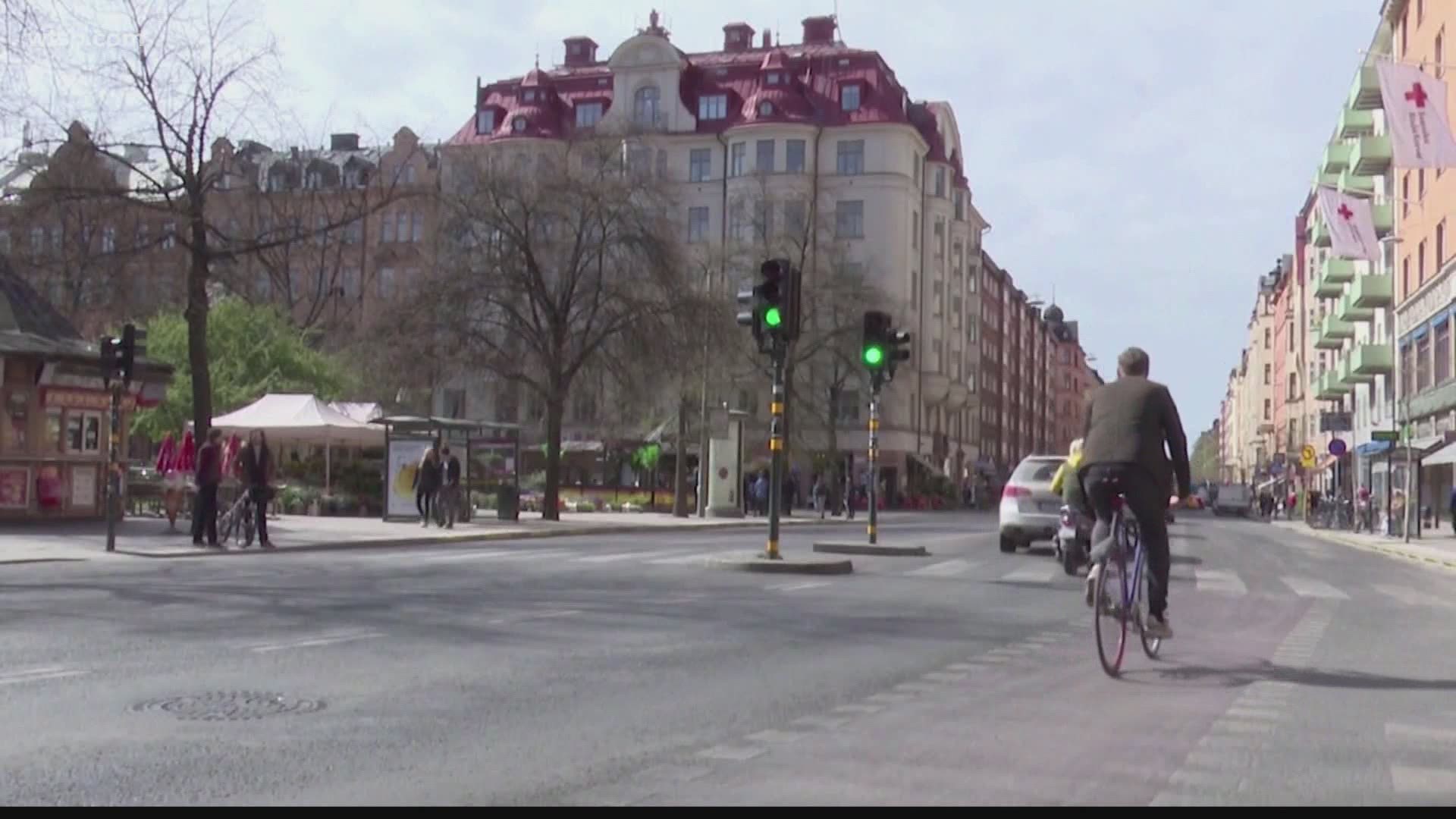TAMPA, Fla. — For the last few months, medical experts have talked about the need for herd immunity in stopping the spread of COVID-19.
Herd immunity is when a vast majority of the population are protected by a virus or bacteria and therefore slow the spread of transmission.
The country of Sweden has made headlines for taking a more lenient approach in the fight against the coronavirus. Some thought the country would achieve herd immunity by allowing the coronavirus to spread, infecting large numbers of people who then recover thus creating protection for a large majority of people.
By the end of May, that hadn't happened.
Dr. Michael Teng, a professor at the University of South Florida with a specialty in Allergy, Immunology & Infectious Disease says that didn't happen in Sweden for a number of reasons.
"It tells you that if you don’t really do those lockdowns, you will get more infections," he said.
Teng also pointed out that while Sweden wasn't enforcing quarantines, the government was still recommending social distance guidelines.
How many people need to be immune for it to work?
It depends on the pathogen and how easily it spreads. It's usually upwards of 70 percent.
"Measles virus -- we think herd immunity needs to be upwards of 95 percent because it’s an extremely transmissible disease," said Teng.
How do we achieve herd immunity?
Either everybody gets infected with a virus and they die or survive with antibodies or researchers develop a vaccine.
Why does COVID-19 spread so easily?
Dr. Teng said, "Nobody’s immune. The virus does what we’re seeing right now, spreads like wildfire through the community because it’s like a forest fire. All this fuel, it can go from one place to another, especially with global travel. Hop, skip, jump, all across the world."
How can we achieve herd immunity against the coronavirus?
"The biggest roadblock is we don’t have a vaccine. We need to find a way to immunize everybody without getting them sick, we need a fully functional effective vaccine. Without getting everybody infected, that’s the only way to achieve herd immunity," said Teng.
We can't just allow the virus to spread because most people will survive without complications because it would strain our hospital system and kill a staggering number of people.
"This virus causes a significant amount of mortality. This is not something to fool around with. This is not the flu. You can get really sick and you will die form this virus," Teng added.
We also don't know how long immunity against COVID-19 lasts. Researchers are still trying to determine if the coronavirus is mutating and how long antibodies protect someone from the infection. That will determine whether people need one vaccine or several over the course of time.
The vaccine only works if people get it.
"One thing that is concerning is distrust of vaccines out there. I think that’s going to be dangerous for this virus. If we come up with a vaccine in 12 to 18 months, we’re going to need everybody to take it," said Teng.
What other people are reading right now:
- Researchers track high levels of COVID-19 in Florida wastewater
- World Redhead Day is May 26! 12 fun facts about red hair
- Weather forecast looks iffy for historic SpaceX, NASA launch
- 3 adults, 3 children ejected during deadly rollover crash near Orlando
- FBI called in after man dies following incident with Minneapolis Police
FREE 10 TAMPA BAY APP:
►Stay In the Know! Sign up now for the Brightside Blend Newsletter



